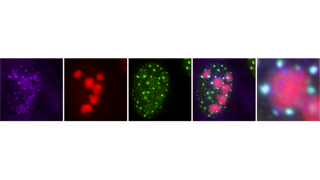Conceptions about osteoarthritis hinder its management

Osteoarthritis is a rapidly growing global health challenge with substantial costs of care. Its treatment is primarily based on non-pharmacological self-management. Both active and meaningful participation in care as well as efficient self-management require that individuals understand their condition. Previous research has shown that unhelpful beliefs about osteoarthritis can negatively influence health behavior and the management of osteoarthritis.
The purpose of this study was to explore the qualitatively different conceptions of osteoarthritis and identify critical differences between these conceptions. The research data were collected through individual interviews with 20 individuals diagnosed with hip or knee osteoarthritis and analyzed using a phenomenographic analysis method.
The analysis yielded four different collective ways of understanding osteoarthritis. It was understood as 1) unknown, incurable disease, 2) a degenerative erosion of aging joints, 3) an inevitable joint degradation due to living and loading, and 4) a multifaceted condition. These categories encompassed seven varying themes of expanding awareness: etiology, the nature of osteoarthritis, life consequences, coping attitudes, physical activity, management practices, and healthcare professionals’ attitudes.
The study shows that conceptions of osteoarthritis vary significantly. An advanced understanding of osteoarthritis encompasses broader knowledge of the condition, increased confidence in managing it, recognition of personal coping strategies, strengthened acceptance, individualized guidance and support from healthcare professionals, and an enhanced sense of agency.
The results also highlighted the broader significance of osteoarthritis in relation to the body, identity, and social roles such as parenthood and femininity, and revealed concerns among those planning to start a family.
These findings can be useful in developing osteoarthritis management practices and patient education that address different understandings and needs, including the correction of unhelpful misconceptions.
The study is part of the FIN-OA research project, which aims to implement the Danish Good Life with Osteoarthritis in Denmark (GLAD®) education and treatment program in Finland.
Original article:
Rauhansalo, E., Holopainen, R., Skou, S. T., & Vuoskoski, P. (2025). “My osteoarthritis is not the same as the millions of others” – conceptions of osteoarthritis among people with hip and knee osteoarthritis. Disability and Rehabilitation, 1–13, DOI: 10.1080/09638288.2025.2499585





